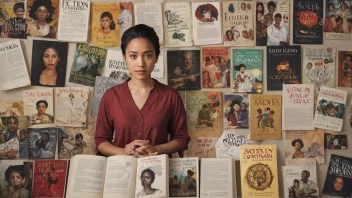Speculative fiction often ventures into the realms of the unknown, exploring possibilities beyond our current reality. Within these narratives, family dynamics play a crucial role, shaping characters and influencing plots. From the bonds that unite families to the conflicts that divide them, speculative fiction provides a unique lens through which we can examine the essence of familial relationships. In this article, we delve into five compelling ways family dynamics are portrayed in speculative fiction, showcasing their significance in shaping stories across various subgenres.
1. The Foundation of Identity
In many speculative fiction narratives, family serves as the cornerstone of a character’s identity. The relationships, cultural heritage, and values imparted by family shape protagonists from a young age. This theme resonates in works like The Left Hand of Darkness by Ursula K. Le Guin, where the protagonist Genly Ai navigates complex social structures influenced by familial ties. Similarly, in The House of the Spirits by Isabel Allende, the characters’ identities intertwine with their family histories, revealing how familial legacies impact individual choices and societal roles.
2. Conflict and Dystopia
Conflict within families often mirrors larger societal issues in speculative fiction. Dystopian narratives frequently highlight the breakdown of familial bonds in oppressive societies. For instance, in 1984 by George Orwell, the Party's control extends to familial relationships, resulting in betrayal and disconnection. This theme serves to critique the loss of personal connections in totalitarian regimes. Similarly, in The Hunger Games series by Suzanne Collins, Katniss Everdeen’s relationship with her sister Prim exemplifies how familial love can motivate rebellion against tyranny.
3. Alternate Realities and Dimensions
Speculative fiction often explores alternate realities where family dynamics differ significantly from our own. These variations can illuminate the complexities of relationships. In Dark Matter by Blake Crouch, the protagonist Jason Dessen grapples with alternate versions of his family, forcing him to confront the choices that led him to his current life. Such narratives encourage readers to reflect on the fragility of family bonds and how different circumstances can lead to vastly different outcomes.
4. Generational Trauma and Healing
The theme of generational trauma is prevalent in speculative fiction, revealing how the past impacts family dynamics. Works like Kindred by Octavia Butler examine the legacy of trauma across generations, showcasing how ancestral experiences shape contemporary families. In fantasy realms, such as in The Broken Earth Trilogy by N.K. Jemisin, characters confront their family histories to heal and reclaim their identities, illustrating the importance of understanding and addressing the past.
5. Redefining Family Structures
Speculative fiction often challenges traditional family structures, presenting diverse representations of kinship. Whether it’s through chosen families in science fiction, like in Guardians of the Galaxy, or unconventional family units in fantasy, these narratives reflect the evolving nature of families in contemporary society. By showcasing various forms of relationships, speculative fiction encourages readers to embrace inclusivity and broaden their understanding of what constitutes a family.
In conclusion, family dynamics in speculative fiction serve as a powerful narrative device, providing insight into identity, conflict, and societal structures. By exploring themes of conflict, alternate realities, generational trauma, and redefining family, these stories resonate with readers on a profound level. As we continue to engage with speculative fiction, we are reminded of the importance of family in shaping our understanding of ourselves and the world around us.






